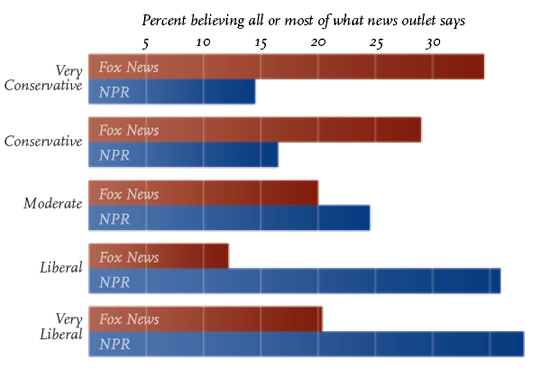|
||
      |
Fig.1
Consider the source
Media bias seems a fact of life. Conservatives watch Fox News, while liberals take comfort in NPR and the New York Times. Many scholars blame editors, reporters, or consumers, but in a study published in the April Journal of Political Economy, Chicago economists Matthew Gentzkow and Jesse M. Shapiro find a different explanation for why people be--lieve their chosen outlets. Slanted news, they say, is more a matter of market forces than human intent. Aiming to boost business, media outlets crave credibility, but because consumers are more likely to trust stories that confirm prior beliefs, reporters and editors are reluctant to offer contradictory evidence—even, the researchers say, “if they believe the evidence to be true.”
Bias drops when indisputable facts can be checked immediately—sports
scores, for instance, or weather reports and stock returns—and it
rises when news stories are harder to evaluate. Coverage of foreign wars,
global warming, and alternative tax policies are more likely to be biased.
The solution Gentzkow and Shapiro prescribe is increased competition. In
a crowded field, news firms run a greater risk that their distortions will
be exposed.
